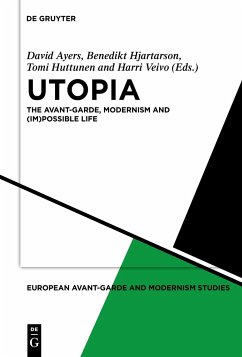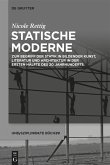Utopian hope and dystopian despair are characteristic features of modernism and the avant-garde. Readings of the avant-garde have frequently sought to identify utopian moments coded in its works and activities as optimistic signs of a possible future social life, or as the attempt to preserve hope against the closure of an emergent dystopian present. The fourth volume of the EAM series, European Avant-Garde and Modernism Studies, casts light on the history, theory and actuality of the utopian and dystopian strands which run through European modernism and the avant-garde from the late 19th to the 21st century.
The book's varied and carefully selected contributions, written by experts from around 20 countries, seek to answer such questions as:
· how have modernism and the avant-garde responded to historical circumstance in mapping the form of possible futures for humanity?
· how have avant-garde and modernist works presented ideals of living as alternatives to the present?
· how have avant-gardists acted with or against the state to remodel human life or to resist the instrumental reduction of life by administration and industrialisation?
Hinweis: Dieser Artikel kann nur an eine deutsche Lieferadresse ausgeliefert werden.
The book's varied and carefully selected contributions, written by experts from around 20 countries, seek to answer such questions as:
· how have modernism and the avant-garde responded to historical circumstance in mapping the form of possible futures for humanity?
· how have avant-garde and modernist works presented ideals of living as alternatives to the present?
· how have avant-gardists acted with or against the state to remodel human life or to resist the instrumental reduction of life by administration and industrialisation?
Hinweis: Dieser Artikel kann nur an eine deutsche Lieferadresse ausgeliefert werden.








